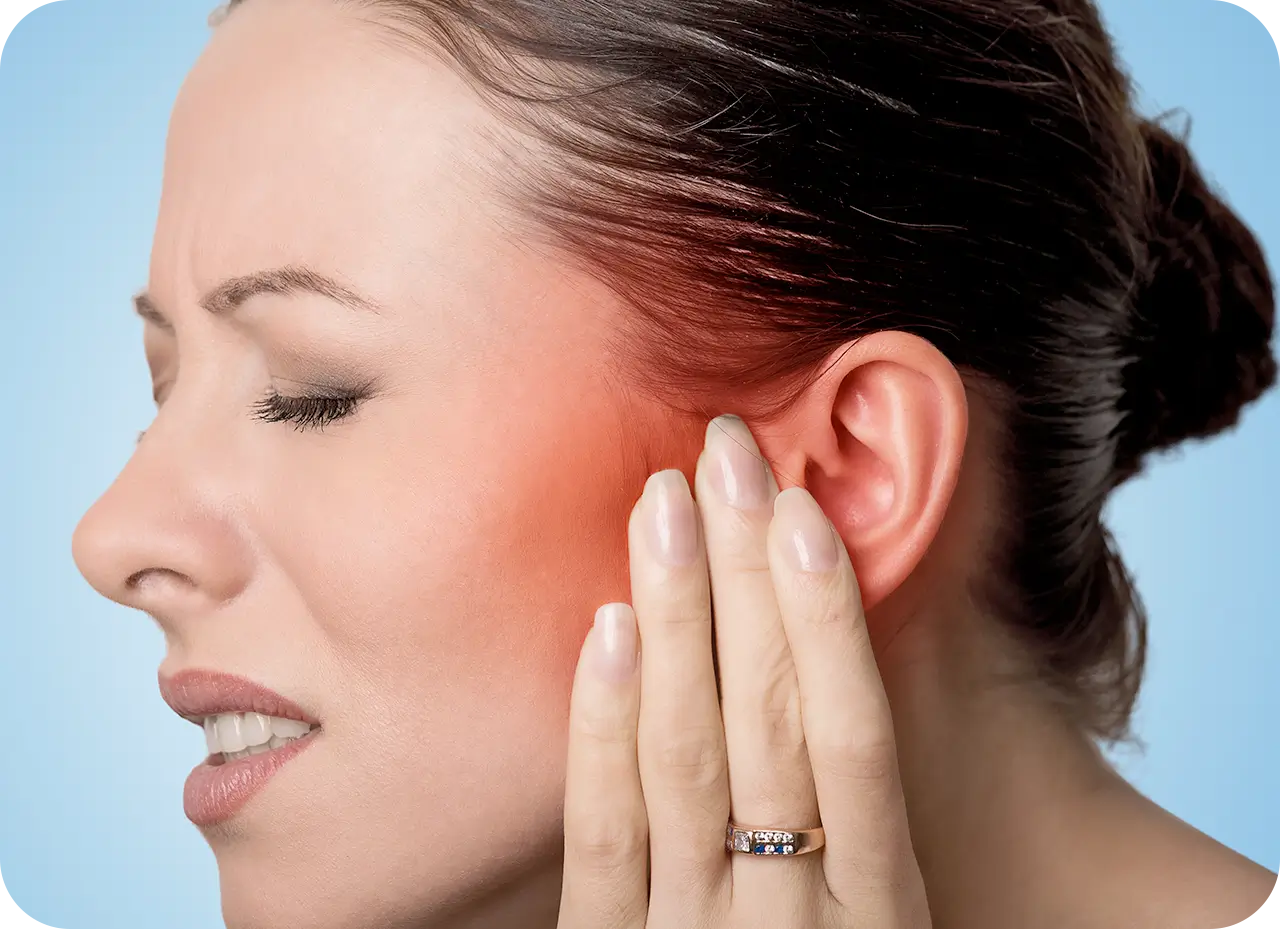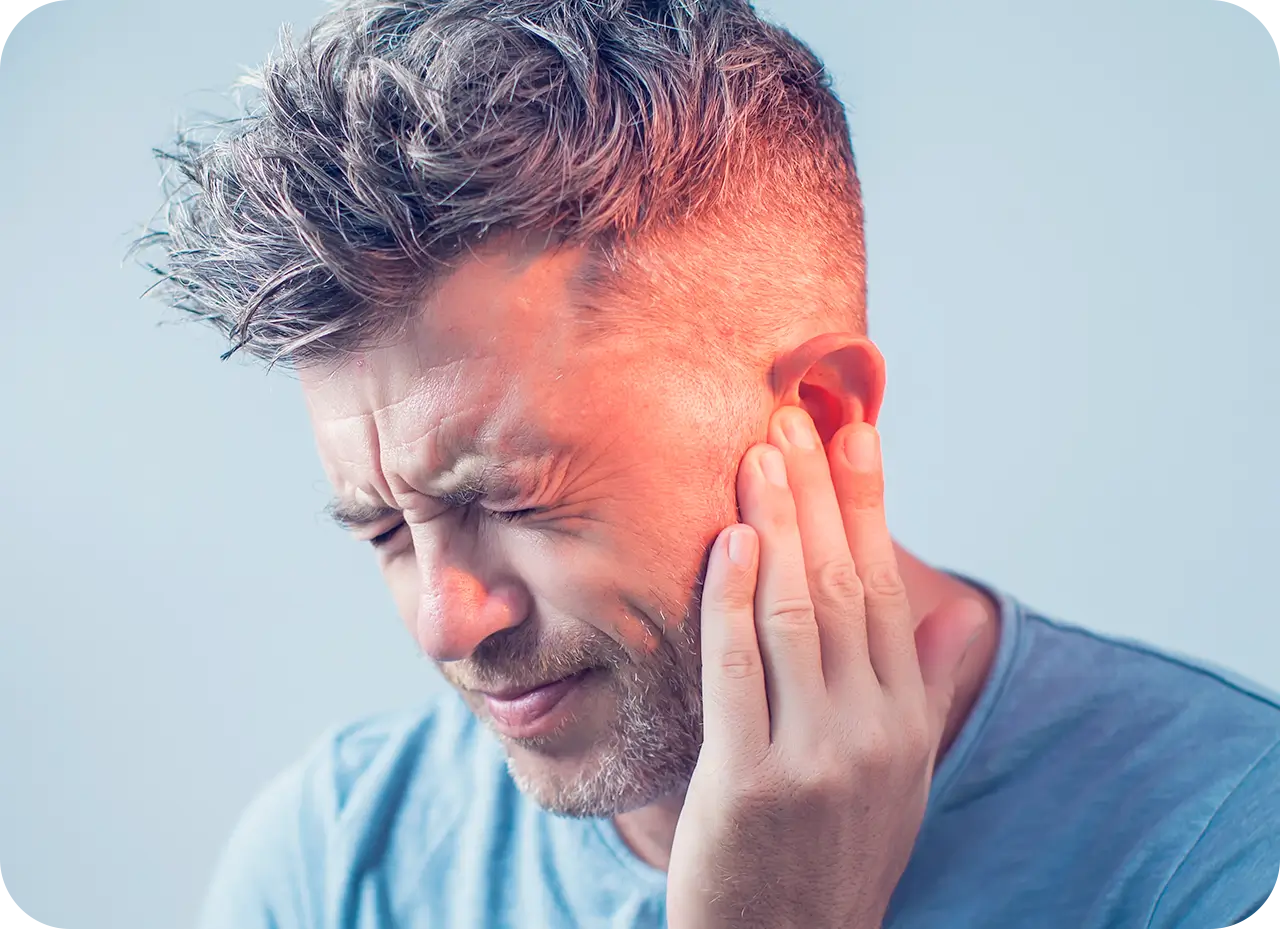Sinus infections, also known as sinusitis, are a common issue that many of us deal with, especially when the seasons change. But what happens when this infection doesn’t just make your nose stuffy but also causes ear pain? It’s frustrating, right? That uncomfortable, nagging pain in your ears can make everything feel worse. But don’t worry, in this article, we’re going to explore why sinus infections cause ear pain and, more importantly, give you 5 practical tips for easing that pain. Plus, we’ll cover how to care for your ears while you’re battling a sinus infection. Let’s dive in!
What Causes Ear Pain from Sinus Infection?
Before jumping into remedies, it’s important to understand why a sinus infection causes ear pain. Your ears, nose, and throat are all connected through a network of passages, and when one part is affected, the others can feel the impact. The ear pain you’re experiencing is likely due to pressure building up in your sinuses and Eustachian tubes, which connect your middle ear to the back of your nose and throat.
When your sinuses become inflamed during a sinus infection, they block the normal flow of mucus, which can also clog your Eustachian tubes. This prevents your ears from equalizing pressure, causing that familiar feeling of fullness or discomfort. If the pressure builds up too much, it can lead to earaches, muffled hearing, and even dizziness.
In some cases, earwax buildup can add to the discomfort, especially when your sinuses are congested. If you’re dealing with this, using an ear cleaning camera can help you safely check for any blockages and keep your ears clean during the infection.
Symptoms of Ear Pain from Sinus Infection
Now that you know the cause, let’s talk about the symptoms. If you’re experiencing ear pain due to a sinus infection, here’s what you might notice:
-
Fullness in the ears: It might feel like your ears are plugged, or you’re underwater.
-
Pain or discomfort: A sharp or dull ache in your ears, sometimes spreading to your jaw or face.
-
Muffled hearing: The congestion can cause your hearing to feel a little off, like you're hearing through a thick fog.
-
Feeling of pressure: You might feel pressure in the ear, particularly when you try to swallow or yawn.
-
Headaches: Since your sinuses and ears are connected, the pressure can sometimes cause headaches, which might get worse when you lie down.
If any of these symptoms sound familiar, you’re likely dealing with ear pain caused by sinus issues.
Related: Can an Ear Infection Cause Tooth Pain?
5 Tips for What Helps Ear Pain from Sinus Infection
Alright, now for the good stuff—how to relieve that ear pain. We’ve got five practical tips that can help ease the discomfort and make you feel more comfortable while you wait for the infection to clear up.
Apply a Warm Compress
A simple but effective remedy for ear pain is applying a warm compress to the affected area. Heat helps to relax the muscles around your ear, promote blood flow, and relieve some of that built-up pressure. All you need to do is take a clean washcloth, soak it in warm water, wring it out, and hold it against your ear for about 10-15 minutes. If you don’t have a washcloth, a warm heating pad can work too. Just make sure it’s not too hot to avoid burning your skin.
Use Over-the-Counter Pain Relievers
Sometimes, a little pain relief is necessary to get through the day. Over-the-counter pain relievers like ibuprofen (Advil) or acetaminophen (Tylenol) can help reduce the pain and inflammation caused by a sinus infection. Make sure to follow the dosage instructions on the label and consult with your doctor if you have any concerns or existing conditions. In some cases, your doctor might recommend a stronger pain reliever, but this is usually a temporary solution to manage the pain.
Stay Hydrated
Drinking plenty of fluids is always a good idea when you’re dealing with a sinus infection. Staying hydrated helps thin out the mucus in your sinuses, making it easier for your body to drain it. This can reduce the pressure in your sinuses and your ears. Water is the best choice, but herbal teas, broths, and soups can also help. Avoid drinks that are too sugary or caffeinated, as they might make you feel more dehydrated in the long run.
Consider Nasal Decongestants
If your nasal congestion is severe, using a nasal decongestant can help relieve some of the pressure on your ears. Decongestants work by shrinking the swollen tissues in your sinuses and nasal passages, allowing the mucus to drain more easily. You can find decongestant sprays, oral medications, or even saline nasal rinses at your local pharmacy. Be cautious, though—decongestant nasal sprays should only be used for a short period (usually no more than 3 days) to avoid rebound congestion.
Practice Steam Inhalation
Steam is a great way to open up your airways and relieve sinus congestion. This can be especially helpful for clearing the pressure in your ears. You can either take a hot shower and breathe in the steam or create your own steam session by boiling a pot of water, placing a towel over your head, and leaning over the pot to inhale the steam (just be careful not to burn yourself). Adding a few drops of eucalyptus or peppermint oil to the water can also help open your sinuses and make it easier to breathe.
How to Take Care of Your Ears During a Sinus Infection
When you’re dealing with a sinus infection, it’s common for your ears to feel the impact as well. The inflammation and pressure in your sinuses can cause discomfort in your ears, such as a sense of fullness, pressure, or even pain. Proper ear care during this time can help alleviate discomfort and prevent further complications. Here are several ways to take care of your ears while dealing with a sinus infection, including earwax cleaning tips.
-
Avoid Inserting Objects into Your Ears
Even though your ears may feel clogged or uncomfortable during a sinus infection, avoid inserting cotton swabs or other objects into your ear canal. This can irritate your ear canal, push earwax deeper inside, or even cause damage to the sensitive lining of the ear.
How to Clean Your Ears
-
Clean the outer ear: You can gently wipe the outer part of your ear with a damp washcloth to remove any excess earwax or debris.
-
Earwax softening drops: If you feel like earwax is building up, consider using earwax softening drops. These liquids can help break down earwax and allow it to exit your ear naturally.
-
Keep Your Ears Dry
Excess moisture in your ears can lead to ear infections, which you definitely want to avoid when you're already dealing with a sinus infection. Keeping your ears dry helps prevent moisture buildup and further discomfort.
How to Keep Your Ears Dry
-
Avoid water in your ears: Be careful not to get water in your ears when showering, swimming, or washing your face. You can use waterproof earplugs to protect your ears during these activities.
-
Dry your ears properly: After showering or swimming, tilt your head to each side to help any trapped water escape. You can also gently pat the outer ear with a clean towel to absorb excess moisture.
-
Avoid using earphones: Earphones and earbuds can trap moisture and heat in your ears, which can worsen discomfort. It's best to avoid using them while your sinuses are inflamed.
-
Manage Sinus Pressure to Reduce Ear Discomfort
Sinus infections often lead to blocked Eustachian tubes, which connect the sinuses to the ears. When these tubes become blocked, it can cause ear discomfort or a sensation of fullness. Managing sinus pressure can help alleviate ear discomfort.
How to Relieve Pressure
-
Stay hydrated: Drinking plenty of fluids helps thin the mucus in your sinuses, making it easier for your body to clear it out and reduce pressure in your ears.
-
Use saline nasal spray: A saline spray or rinse can help reduce nasal congestion and clear out mucus from your sinuses, which may also reduce pressure in your ears.
-
Use a humidifier: Dry air can worsen sinus congestion, so using a humidifier in your room can help relieve both sinus and ear discomfort.
-
Avoid Sudden Pressure Changes and Loud Noises
Your ears are more sensitive when you’re dealing with a sinus infection. Sudden changes in air pressure (like those experienced during flying or diving) or loud noises can exacerbate ear discomfort.
How to Avoid These Issues
-
Avoid flying: If possible, try to avoid flying while you have a sinus infection. The rapid changes in air pressure can worsen ear pain and discomfort.
-
Protect your ears from noise: If you find yourself in a loud environment, use ear protection like earplugs to help reduce the strain on your ears.
-
Earwax Care During a Sinus Infection
During a sinus infection, your ears may feel more congested than usual, and earwax can build up more easily. Proper earwax care can help avoid further discomfort and maintain your ear health.
How to Safely Clean Earwax
-
Avoid cotton swabs: Never insert cotton swabs into your ear canal. This can push earwax deeper into the ear and cause blockages or irritation.
-
Use earwax softening drops: Over-the-counter ear drops can help soften earwax, making it easier to clear out. Ingredients like hydrogen peroxide or carbamide peroxide are commonly found in these products and can help break down earwax safely.
-
Ear cleaning tools: If you frequently have earwax buildup, there are ear cleaning tools available, such as earwax removal sticks or electronic devices (like Bebird) that help clean the ear canal safely. Always follow the manufacturer’s instructions to avoid injury.
Important Note: If earwax buildup is severe or causing hearing problems, it’s a good idea to consult a healthcare provider. They can safely remove earwax and offer advice on maintaining ear health.
Conclusion
Sinus infections are not only annoying because of nasal congestion but also because they can cause ear pain. The pressure from blocked sinuses can affect your ears, leading to discomfort, fullness, and muffled hearing. While it may take some time for the infection to clear, there are simple ways to relieve ear pain, such as using warm compresses, staying hydrated, and practicing steam inhalation.
Proper ear care is also key – avoid inserting objects into your ears, keep them dry, and consider safe ear cleaning options if earwax is a problem. If earwax buildup is contributing to the issue, try Bebird's ear wax cleaning tools for a safe and effective cleaning solution.
Related: The History of the WaxVac Ear Cleaner: How It Changed Ear Care
















Leave a comment
All comments are moderated before being published.
This site is protected by hCaptcha and the hCaptcha Privacy Policy and Terms of Service apply.